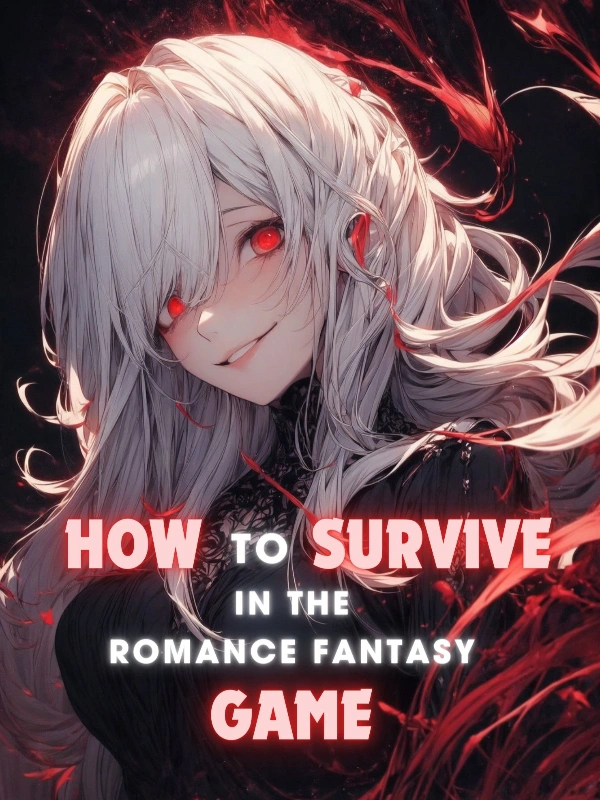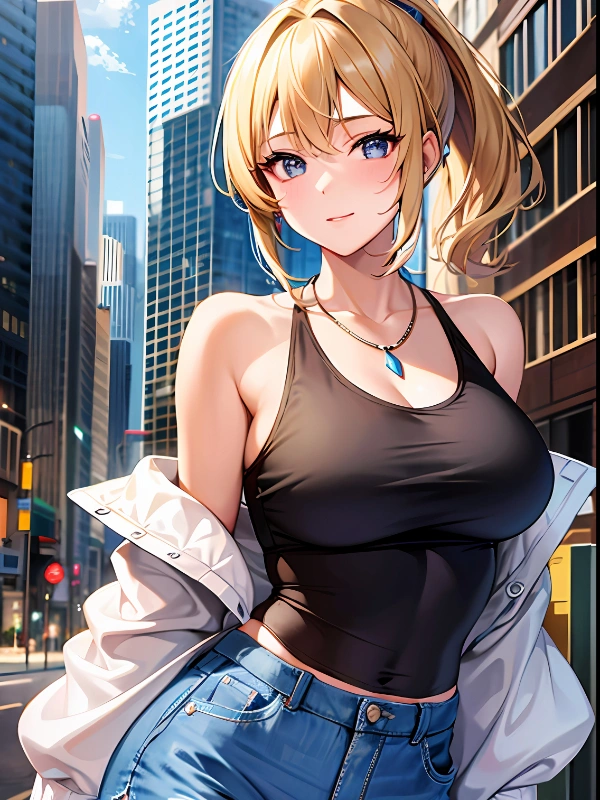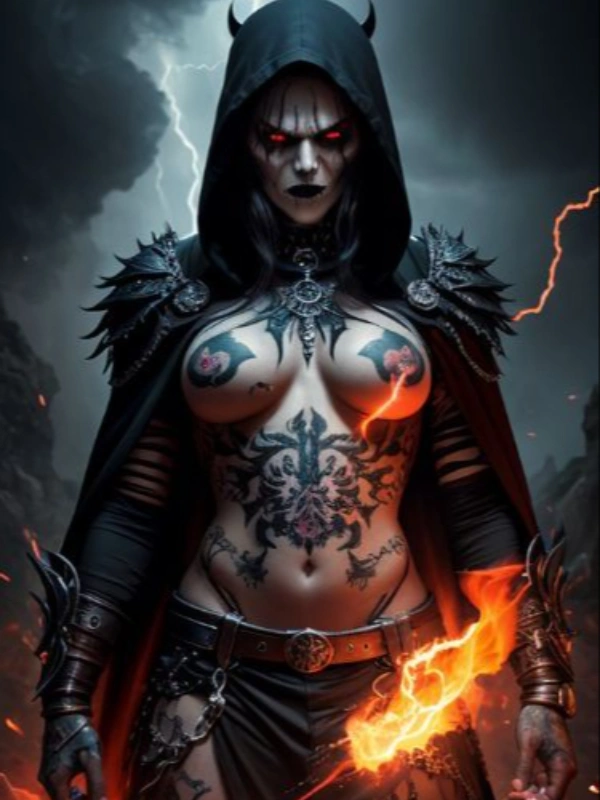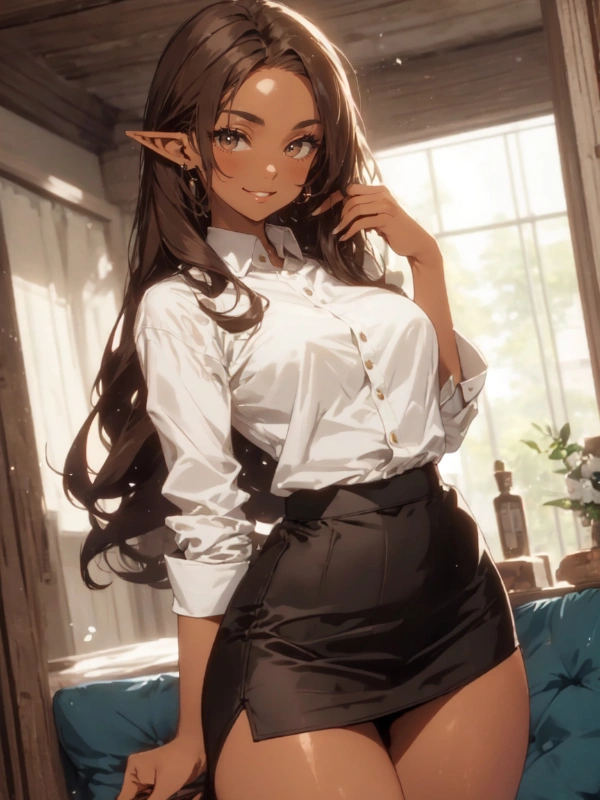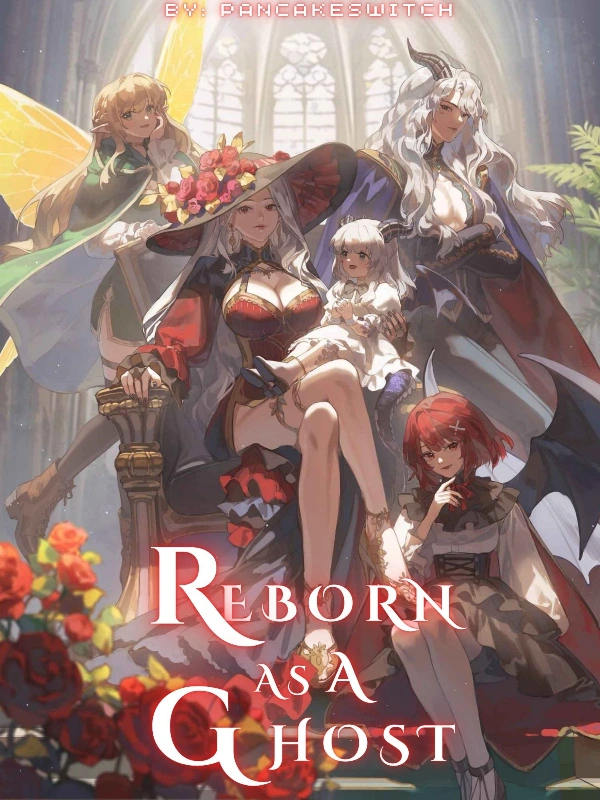Chapter 179: President Interlude
In Hero’s Legacy, each of the main heroines had their own rich backstories and personal struggles, intricately woven into the narrative of the main character.
These scenarios, while unique to each heroine, always tied back to the protagonist, Lucas.
Whether it was through moments of rescue, intervention, or support, the game’s design made it so that Lucas played a pivotal role in each heroine’s story.
Players would be guided through choices and branching paths that shaped how Lucas interacted with these heroines, offering a variety of outcomes and character developments depending on the route chosen.
What stood out about the game was that no matter which path you took, all of it ultimately looped back to the overarching main story.
Lucas was the constant—the linchpin that connected the various threads of the narrative, and players were often rewarded with deeper insights into both Lucas and the heroines by engaging with these subplots.
However, despite this tight narrative design, something curious would begin to emerge for players who delved deeper, playing the game multiple times or exploring every possible route.
For those who invested significant time in Hero’s Legacy, replaying the game again and again, the once seemingly cohesive story began to show cracks.
The illusion of a tightly bound plot began to dissipate as certain inconsistencies became apparent.
Plot holes surfaced—questions left unanswered, events that didn’t align as smoothly as they should have.
Longtime players noticed certain narrative gaps that, despite being central to the story, were simply never addressed.
These plot holes became a point of contention within the game’s small, but dedicated community.
What made it more frustrating was that the game’s developers never acknowledged these discrepancies.
Whether it was in fan forums, social media feeds, or reviews, the same questions would resurface: Why didn’t this character’s story fully resolve?
What happened to that subplot?
Why did this key moment contradict an earlier event?
Yet, the developers remained silent, offering no clarification or updates to address the community’s concerns.
The game had flown under the radar for most mainstream gamers, and by all accounts, it didn’t achieve commercial success.
The low sales figures likely contributed to the lack of post-launch support, leaving many of these issues unresolved.
Despite the game’s flaws and its relative obscurity, there was something about Hero’s Legacy that kept a small group of players coming back.
The game, while flawed, had heart, and its characters and story—plot holes and all—had left an impression on those who stuck with it.
As rare as these certain loopholes and plot holes were, they sometimes popped up in Hero’s Legacy without any clear rationale, leaving players puzzled.
In particular, these inconsistencies seemed to coincide with some of the most popular characters in the game—one of the most glaring examples being Rose Brilliance.
Rose’s entire story arc and character concept felt haphazard, almost as if her route had been devised without a clear direction.
Unlike the other heroines, Rose’s route wasn’t about saving her from some dramatic external plot device or enemy.
Instead, it revolved around something far more introspective—helping her understand her own emotions and reconnecting her with a world she had distanced herself from.
It was a narrative driven by personal growth rather than external conflict.
But as captivating as that might have been, it didn’t account for the series of random and disjointed events that seemed to pop up in her route, leaving players scratching their heads.
One of the most notable examples of this randomness was Rose’s entire family background, which was only touched upon briefly and never fully explored.
In a game so rich in world-building and character development, this seemed like a missed opportunity.
Her family was supposedly influential, with a deep history tied to magic, yet their role in her journey remained a mystery, and much of what was hinted at never materialized into anything substantial.
Even more puzzling was Rose’s connection to Dorothy Gale, the former student council president, which surfaced during one of the game’s lesser-known routes.
Dorothy, a character who went from a supportive ally to a dark, corrupted force, played a significant role in Rose’s arc, but this too felt underdeveloped and lacking in proper exposition.
One of the standout moments in Rose’s route took place on top of the academy’s iconic clocktower.
This scene, pivotal in Rose’s storyline, saw Dorothy turn to the dark side, embracing the powers of the Abyss and transforming into the first demonoid—a monstrous being born from forbidden magic.
As Rose and the protagonist Lucas teamed up to fight Dorothy in an epic battle, the stakes were sky-high.
The clocktower scene was visually stunning and emotionally charged, but it left players with more questions than answers.
The build-up to this moment had been abrupt, with little foreshadowing of Dorothy’s fall from grace or the reasons behind her descent into darkness.
Rose’s involvement in this conflict was equally sudden.
How exactly were Rose and Dorothy connected?
Why did this battle feel so significant, yet come out of nowhere in terms of narrative flow?
The game never provided a concrete explanation, and the players were left to speculate about the nature of their bond and the true impact of Dorothy’s transformation.
These plot holes, especially in Rose’s route, gave players a sense that there was something deeper going on beneath the surface, but it was never fully revealed.
It was as if the game wanted to delve into these complexities but ultimately left them half-baked.
Players often theorized about the significance of Rose’s family and her connection to Dorothy, but the lack of clarity made it frustrating for those who had invested so much time in her character.
The battle with Dorothy Gale was one of the most emotionally complex moments in Hero’s Legacy.
Despite Dorothy being labeled as the mid-boss of the scenario, the fight felt like a final confrontation—both challenging and layered with unexpected depth.
In the end, Dorothy was defeated, her transformation into the first demonoid undone, but her disappearance from the story raised more questions than it answered.
As the dust settled, there was an inexplicable moment that stuck with players: the way Dorothy smiled in acceptance before she vanished.
Her sudden embrace of Rose right before Lucas struck the final blow was an enigmatic act, one that seemed out of place given the circumstances.
It wasn’t just a hug—it carried a weight, an unresolved emotional tension that was never properly addressed.
To this day, fans of the game continue to debate what that moment meant.
Some players saw Dorothy’s smile as menacing, a potential foreshadowing of an even darker force looming on the horizon.
The way she seemed at peace in her final moments, after everything she had done and become, hinted that her story might not truly be over.
Maybe she knew something greater than herself was coming, something that would justify her actions and make her fall into darkness part of a larger plan.
Her embrace of Rose could have been a final act of manipulation—an attempt to plant seeds of doubt or guilt.
But to others, myself included, there was a much deeper, more melancholic layer to that smile.
After playing through the game countless times and seeing that same CG repeatedly, there was one emotion that stood out clearly to me: sadness.
Dorothy’s smile wasn’t menacing, nor was it a sign of things to come—it was the bittersweet acceptance of her fate.
Her hug, her tears, and the way she looked up at the sky as Lucas’s sword pierced her heart, all pointed to something deeply personal and unresolved between her and Rose.
Why did a character as charismatic and seemingly composed as Dorothy cry in that moment?
Why did her emotions surface only when Rose was involved in the scenario?
‘The game never provided concrete answers.’
As I played Hero’s Legacy over and over, I let that lingering question sit quietly in the back of my mind.
The scene with Dorothy—the unanswered mystery surrounding her connection to Rose—felt like one of those things developers throw in for dramatic effect without much thought to how it truly fits.
Maybe they just wanted to add emotional weight to an already abrupt villain arc, a way to make Dorothy’s downfall seem more tragic and layered than it actually was.
But as I watched Dorothy’s speech during the school election, I couldn’t help but think back to that unresolved moment on the clocktower.
“In my humble opinion, I think Miss Rose would be best suited to become president~”
Those were the words she spoke, her voice still carrying that ever-present playful tone.
But there was something different about her demeanor in that scene, the way she scanned the crowd before briefly locking eyes with Rose.
It was subtle, just a fleeting moment, but in that brief exchange, there was a glimmer of something more—acceptance, maybe even regret.
It was the same look she had given Rose during that final battle in the game, just before disappearing from the story entirely.
The same unspoken emotion that left players like me wondering what had truly transpired between them.
Was it friendship?
Rivalry?
Something more?
Whatever it was, the game never explicitly addressed it, leaving only fragmented hints scattered throughout Rose’s route.
But seeing that moment replay in the context of Dorothy’s speech… it felt like a confirmation that there was more to their story than we were ever told.
‘Dorothy Gale….’
I guess you were more connected to Rose than you ever let on.
I used to think that the only reason for her fall into darkness was her familiar, that it had twisted her mind and pushed her to embrace the abyss.
But….
That explanation always seemed too simple, too easy.
But now, watching you stand before the academy, endorsing Rose with that same look of bittersweet understanding, I realize there was something deeper at play.
Walking off the podium after delivering her grand speech, Dorothy kept her characteristic smile plastered on her face, waving to the confused students scattered across the gymnasium.
Murmurs of uncertainty buzzed in the air, and unasked questions seemed to hover, heavy and unanswered, much like the unresolved plot threads in the game.
But Dorothy, just like the developers, chose to ignore them all. She made her way to the back and sat quietly, her smile never faltering, her demeanor unbothered.
A doomed character, destined to disappear after being pushed into a corner—that was her fate in Hero’s Legacy.
It was the very reason she fell into darkness, her spirit broken by forces beyond her control.
That was the absolute narrative: a tragic arc that led to her becoming a villain.
But now, things were different. I had altered her path, steering her away from that inevitable confrontation, away from the forced and ridiculous fight that shouldn’t have happened in the first place.
She had willingly given up her candidacy. In the game, such a surrender would have been impossible, but here, in this version of events, it was a choice—a chance to break free from the fate that had once bound her.
I had provided her an out, and with that decision, her character should be saved, right?
She was no longer backed into a corner; there was no reason for her to fall into darkness anymore. Everything should be fine now.
Or so I thought.
[Note: Evil entity is detected at the user’s presence!]
[Note: Passive effects of [Skill: Hero’s Will (Unique)] will now be automatically activated upon user instability]
The notifications flashed before my eyes, and a sinking feeling gripped my chest.
Slowly, I lifted my gaze, locking eyes with Dorothy as she sat in the back, her flaxen-colored eyes glowing faintly in the dim light of the gymnasium.
A shiver ran down my spine.
Her smile—still warm and deceptively gentle—was the same one she had given Lucas during that climactic moment in the game, right before the darkness had consumed her mind, corrupting her and transforming her into the first demonoid.
It seemed that no matter what I did directly or indirectly, her fate was already settled, and Dorothy had already made her decision since the very beginning
Soon, darkness would cover the academy. And no matter how much I had tried to change things, it was coming.
